5 things designers say you should never put on a dining room table
Keep your dining room table stylish by following this advice from interiors professionals
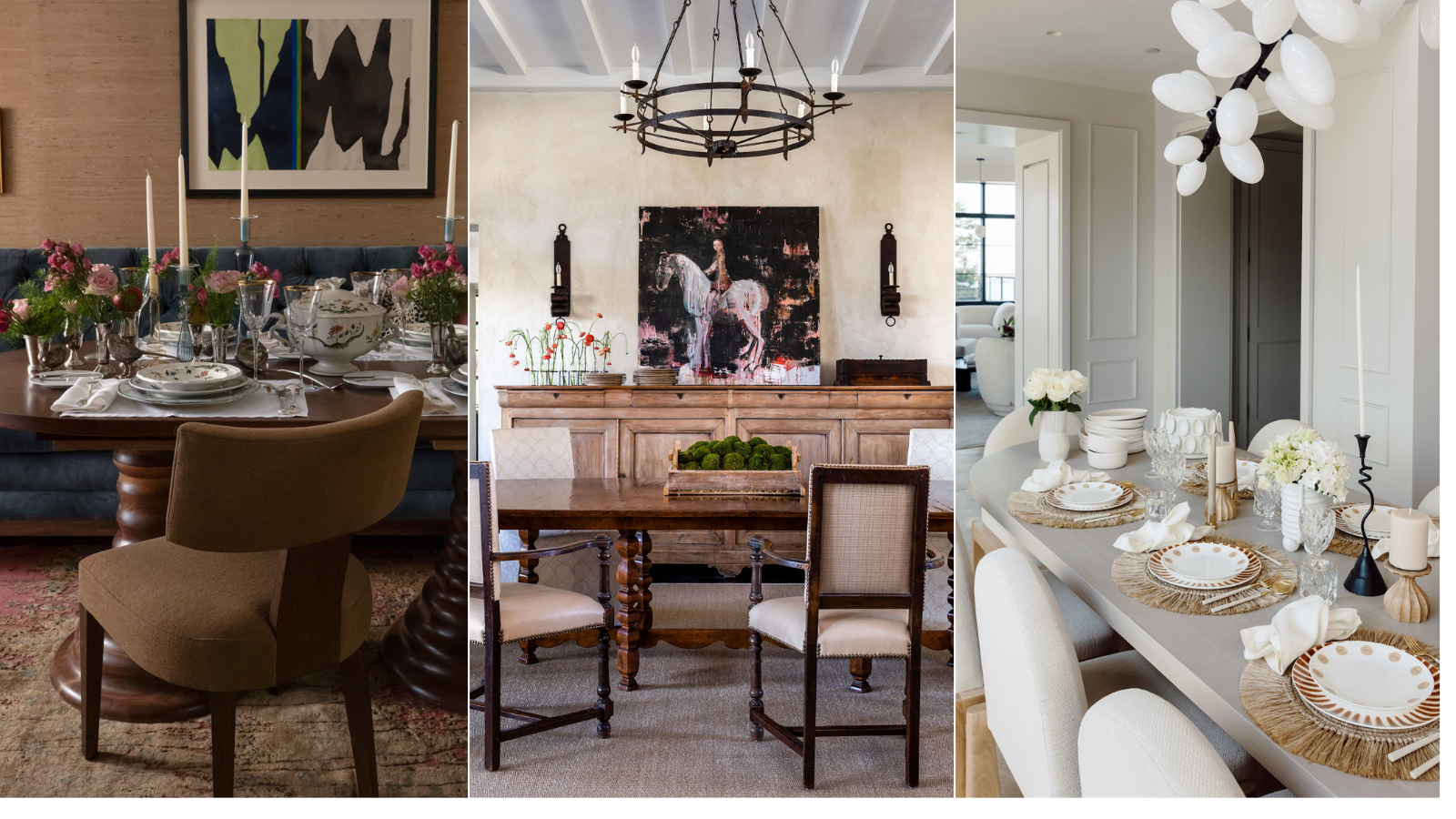

At the center of a space, a dining table deserves to be a chic feature. But when adding decorative elements, designers caution that there are some things you should never put on a dining room table if you want it to look stylish and make guests feel at ease.
Whether you regularly entertain, or gather the family around the table, and whether the table is located in a separate room, or in a zone of an open-concept layout dining room ideas should be beautiful as well as practical, and that includes when dressing the table.
So, which items should placed elsewhere? We asked interior designers to share their expertise on what should go and what can stay on a dining table.
5 things to never put on a dining room table
A dining table should be functional as well as elegant, and ensuring what’s put there won’t clutter the space, nor make diners feel uncomfortable is vital. Whichever dining room furniture trend is your favorite, when you’re considering your tablescape, you might want to avoid including these items.
1. Large centerpieces
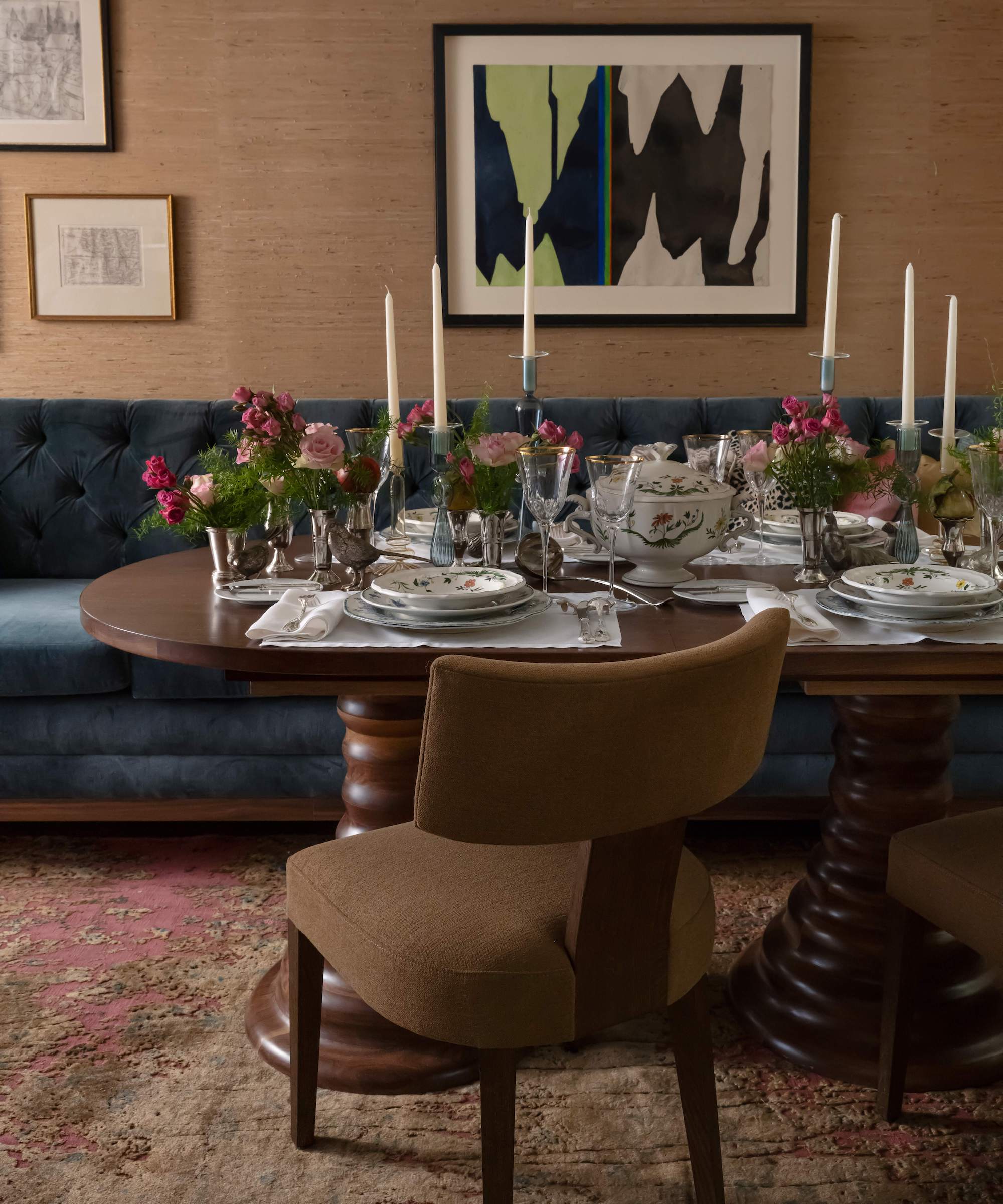
When you’re entertaining a large centerpiece can seem like a suitably impactful choice for the table at the heart of your dining room furniture ideas, but there are reasons to avoid it, including when the large centerpiece chosen is a floral one.
‘One item that people tend to use on the dining room table improperly is also considered one of its main attractions, which is the floral centerpiece,’ says Elle Philippe, culinary expert and French chef who worked with designers Marvin Miller and Leslie Rinehardt of Rinehardt Miller Interiors on the tablescape design shown here.
‘Unfortunately, a big overpowering centerpiece is more cumbersome and awkward than not,’ she says. ‘Large centerpieces tend to block the view of the opposite side of the table and also take up a lot of space, which is usually needed for food dishes.’
There is a better strategy, she suggests. ‘Most people choose to move the large arrangements off the table for dinner, however, we feel a good alternative is to create a grouping of smaller flower arrangements. If you are willing to be more creative, you can take a few minutes to cut the flowers down, and arrange them in small vases or even mismatched cocktail glasses, to make the table setting more interesting and whimsical.’
However, it’s not just oversized floral centerpieces that can cause a problem. The same goes for any superscaled centerpiece since it hogs precious table real estate. ‘A well-styled dining table benefits from a clear, open surface with a striking centerpiece – such as a low, sleek bowl of seasonal fruits or a single large candle – leaving plenty of room for dining,’ says Colleen Bennett of CBB Designs.
2. Tall floral arrangements
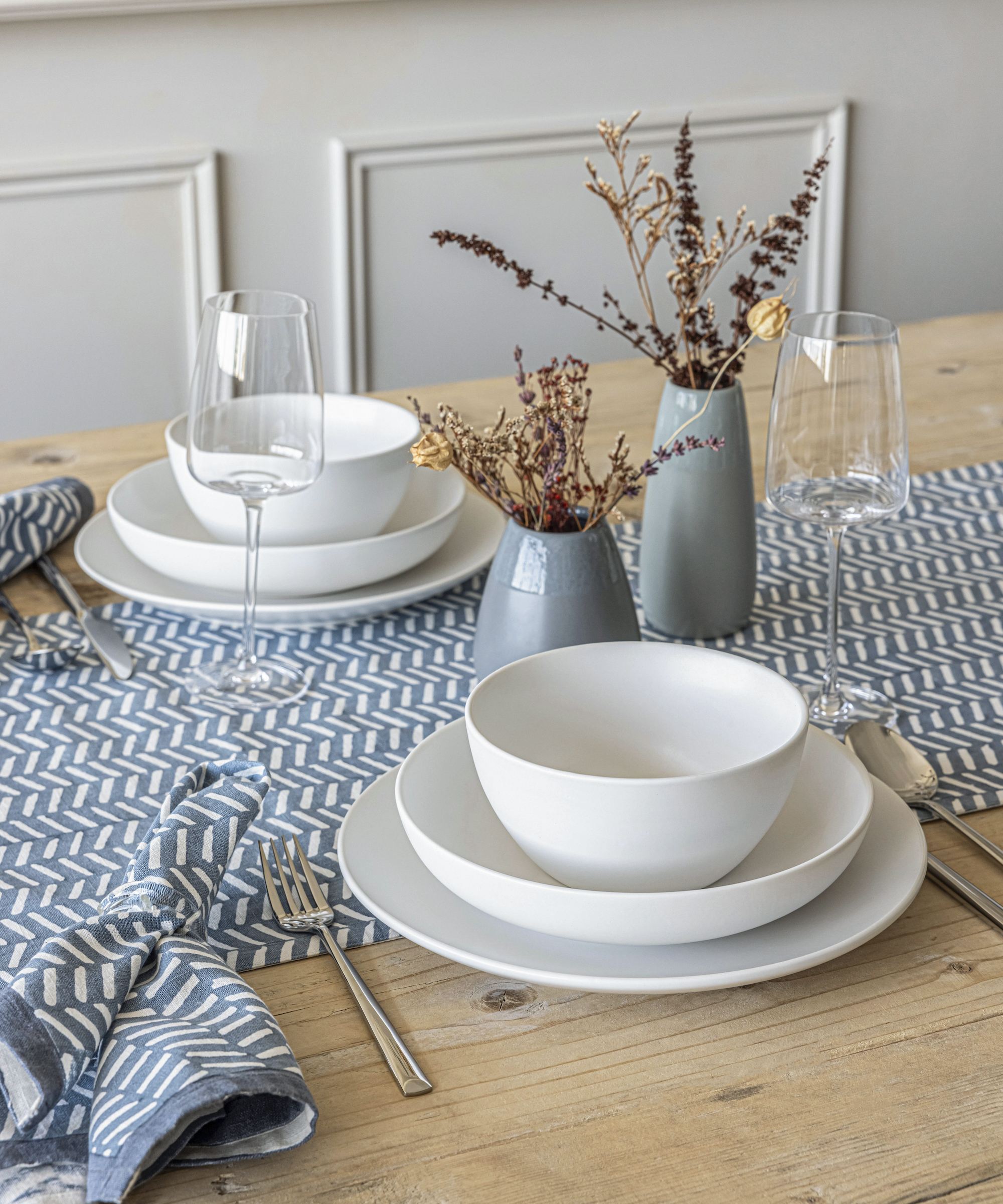
Our experts noted, above, that flowers could cause a problem when they’re part of an overpowering arrangement, but their height can equally be an issue when you have guests around the table.
‘While we all love the look of a gorgeous tall bouquet as a centerpiece, they can affect how your guests are able to converse over dinner,’ says Laura Cassell Fischer, vice president and merchandise and product development at tableware specialists over&back.
‘Not being able to see across the table makes it difficult to chat throughout the meal with the person sitting across from you. We always suggest bud vases or even a small glass filled with shorter florals or greenery. These will still add color to your table but will not impact your ability to have a lively conversation.’
Another must? Make sure you’ve correctly calculated how many people can sit around your dining table for comfort and easy conversation.
3. Placemats
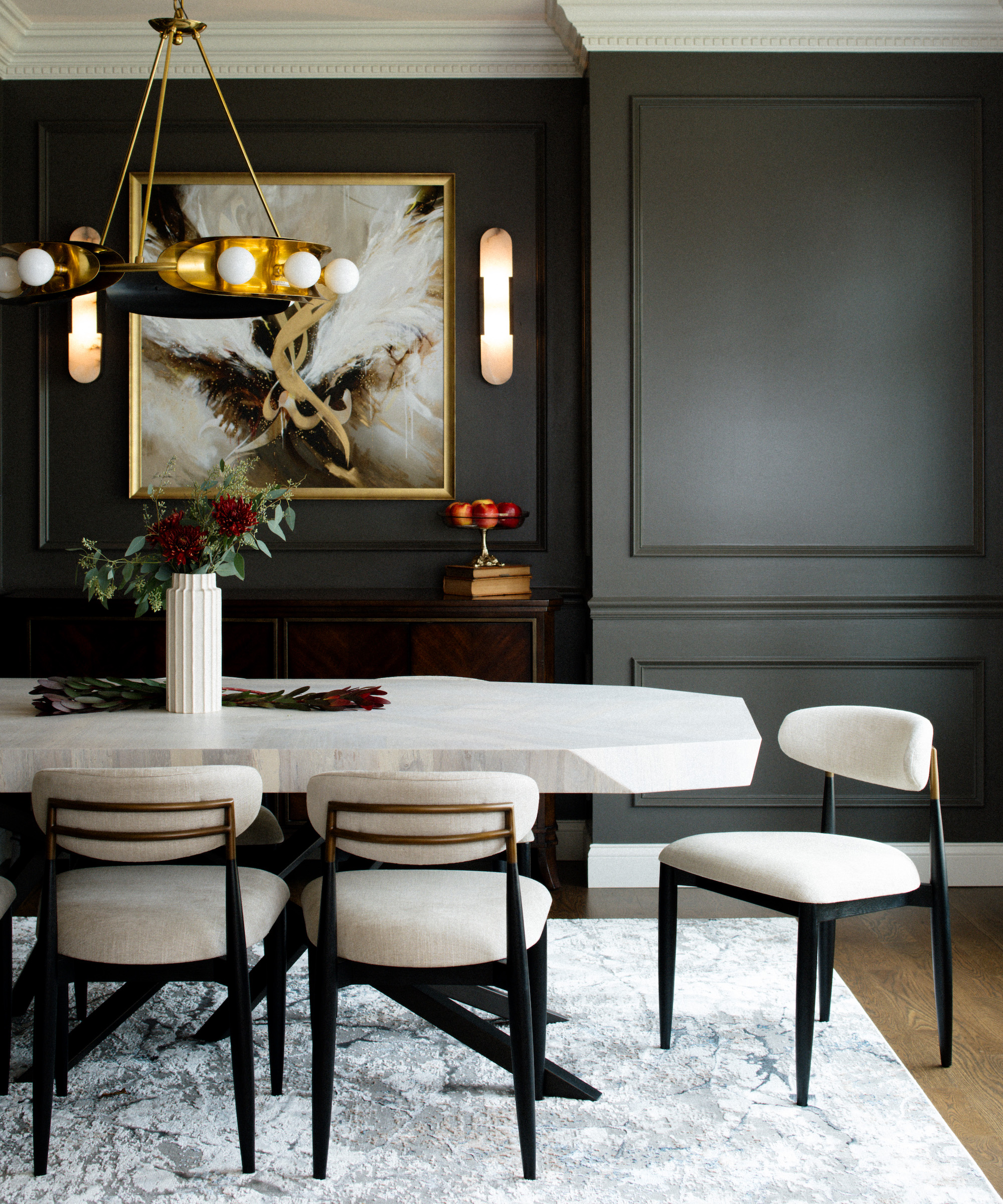
Placemats may seem a surprising thing to ban from a dining table, but there is a little nuance to this advice.
‘Accessories that I would stay away from would be placemats,’ says Melanie Olson, founder and owner of Melanie Olson Design Group. ‘Specifically, when the table isn’t set. This look always feels messy and unfinished. It’s an unnecessary accessory to always have out and should be stored away until the table needs to be set.’
But there are items you can keep on the table when it isn’t being readied for friends and family. ‘When the table isn’t set for a dinner party or gathering, my advice is to always keep it effortless,’ says Melanie. ‘A simple centerpiece is all you need.’
While you might display a vase of fresh flowers, there are other options. ‘Other natural elements including citrus fruits in a marble bowl or greenery in a ceramic vase can add dimension and texture to the space, while not taking away from the table design,’ says Melanie.
4. Small accents
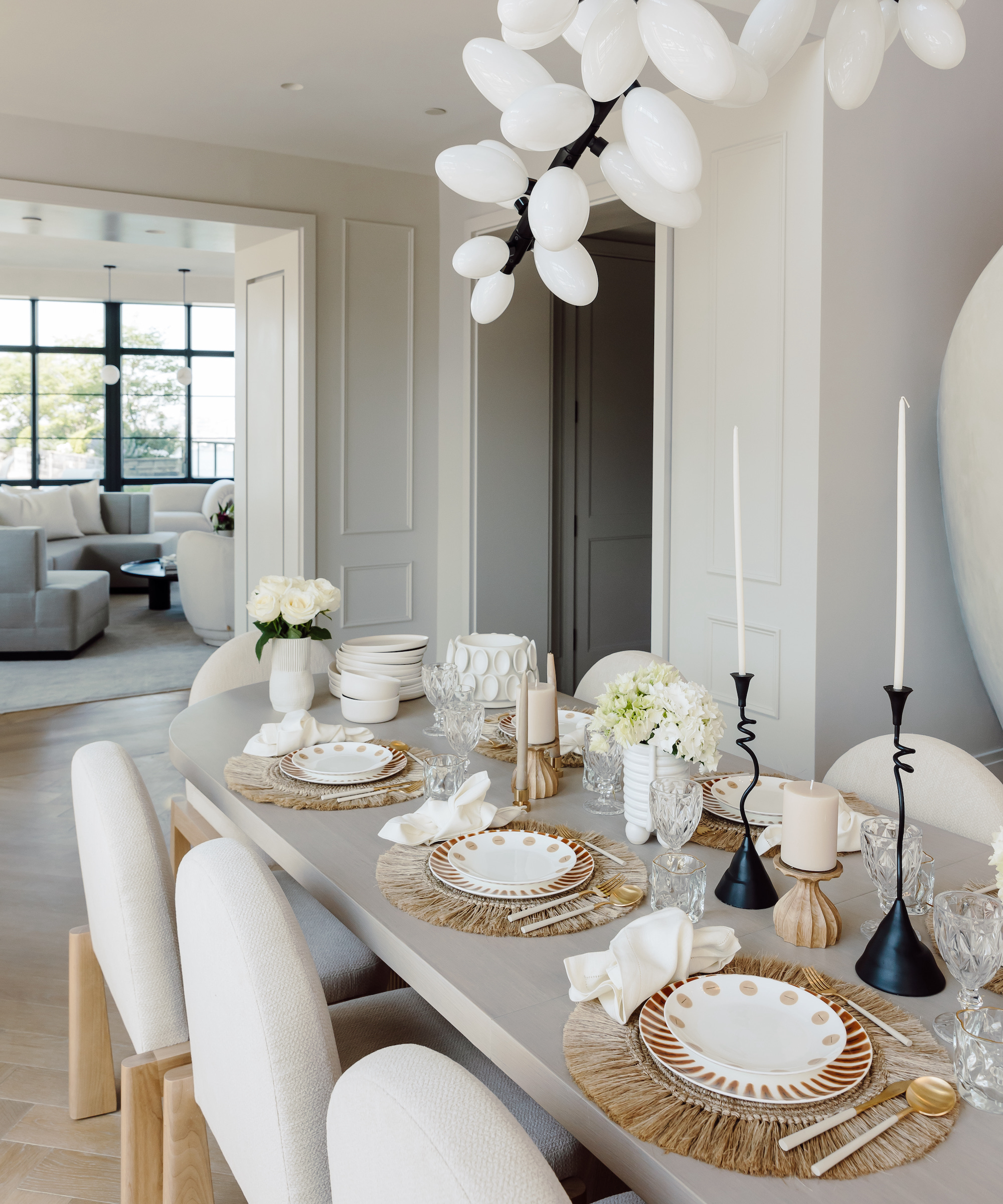
Thinking of displaying a multitude of small elements on a dining table since it’s such an expansive space? Purvi Padia, creative director and founder of Purvi Padia Interiors and creator of tabletop collection REVELRY, recommends that you edit down your choices.
‘The most appealing tables in my opinion have pieces that have a bit of weight to ground the look and then other smaller accent elements,’ she says. ‘Too many small accents can look cluttered and confuse the eye.’
On the other hand, what you can multiply up is the number of materials, Purvi says. ‘I am drawn to the idea of mixing all materials – bone china, hand-blown glass, stone, wood, metals – everything is fair game but be sure to use at least three different materials.’
5. Faux flowers
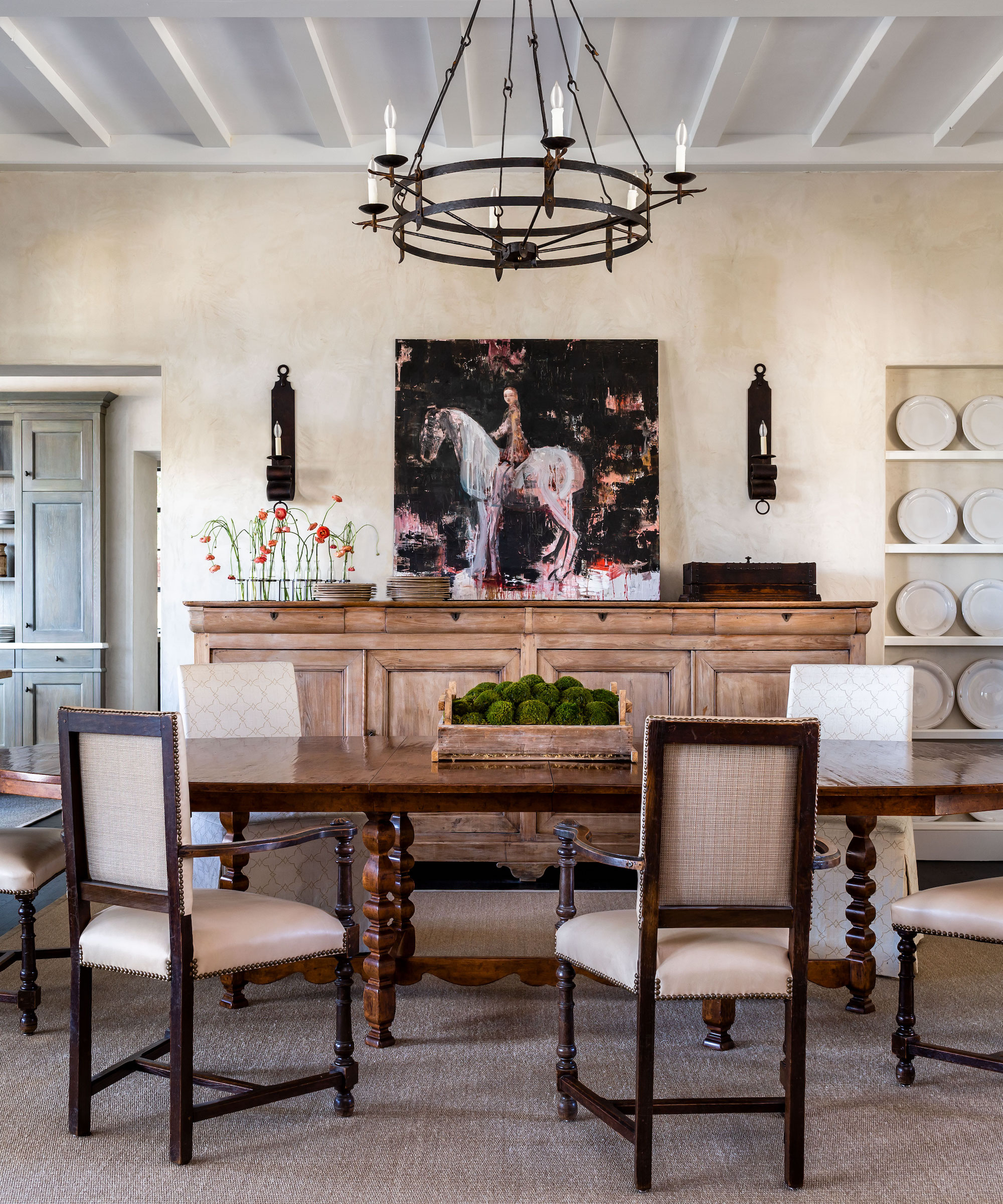
Our design experts have weighed in on the size and the height of floral arrangements, but there is one other floral no-no for the table. ‘I avoid faux florals where I can,’ says Whitney Ray of Wyeth Ray Interiors.
However, since the impulse behind artificial flowers is to have a display that lasts, Whitney suggests another option. ‘A great way to always have a fresh dining table is to buy a bowl or vessel you love and have your local florist add preserved moss,’ she says. ‘It will always stay green, is lightweight to move if needed and is a way better alternative to faux floral arrangements.’
As well as avoiding specific items for the dining room table, practice restraint overall. ‘A common mistake people make when styling a dining table is overloading it with excessive table settings or decor, such as placing too many plates, glassware, or large decorative objects,’ says Colleen Bennett of CBB Designs. ‘This can overwhelm the space and make the table feel cramped. Instead, opt for fewer, thoughtfully chosen elements.’
Sign up to the Homes & Gardens newsletter
Design expertise in your inbox – from inspiring decorating ideas and beautiful celebrity homes to practical gardening advice and shopping round-ups.

Sarah is a freelance journalist and editor. Previously executive editor of Ideal Home, she’s specialized in interiors, property and gardens for over 20 years, and covers interior design, house design, gardens, and cleaning and organizing a home for Homes & Gardens. She’s written for websites, including Houzz, Channel 4’s flagship website, 4Homes, and Future’s T3; national newspapers, including The Guardian; and magazines including Future’s Country Homes & Interiors, Homebuilding & Renovating, Period Living, and Style at Home, as well as House Beautiful, Good Homes, Grand Designs, Homes & Antiques, LandLove and The English Home among others. It’s no big surprise that she likes to put what she writes about into practice, and is a serial house renovator.
-
 Victoria Beckham has a unique formula for perfect bedding: 'Very expensive sheets and cheap pillows' – you can follow her example from $15
Victoria Beckham has a unique formula for perfect bedding: 'Very expensive sheets and cheap pillows' – you can follow her example from $15Victoria revealed she goes for crisp, white bed sheets and pillows with neck support from Target – and you can shop similar buys at an ultra-low cost
By Hannah Ziegler Published
-
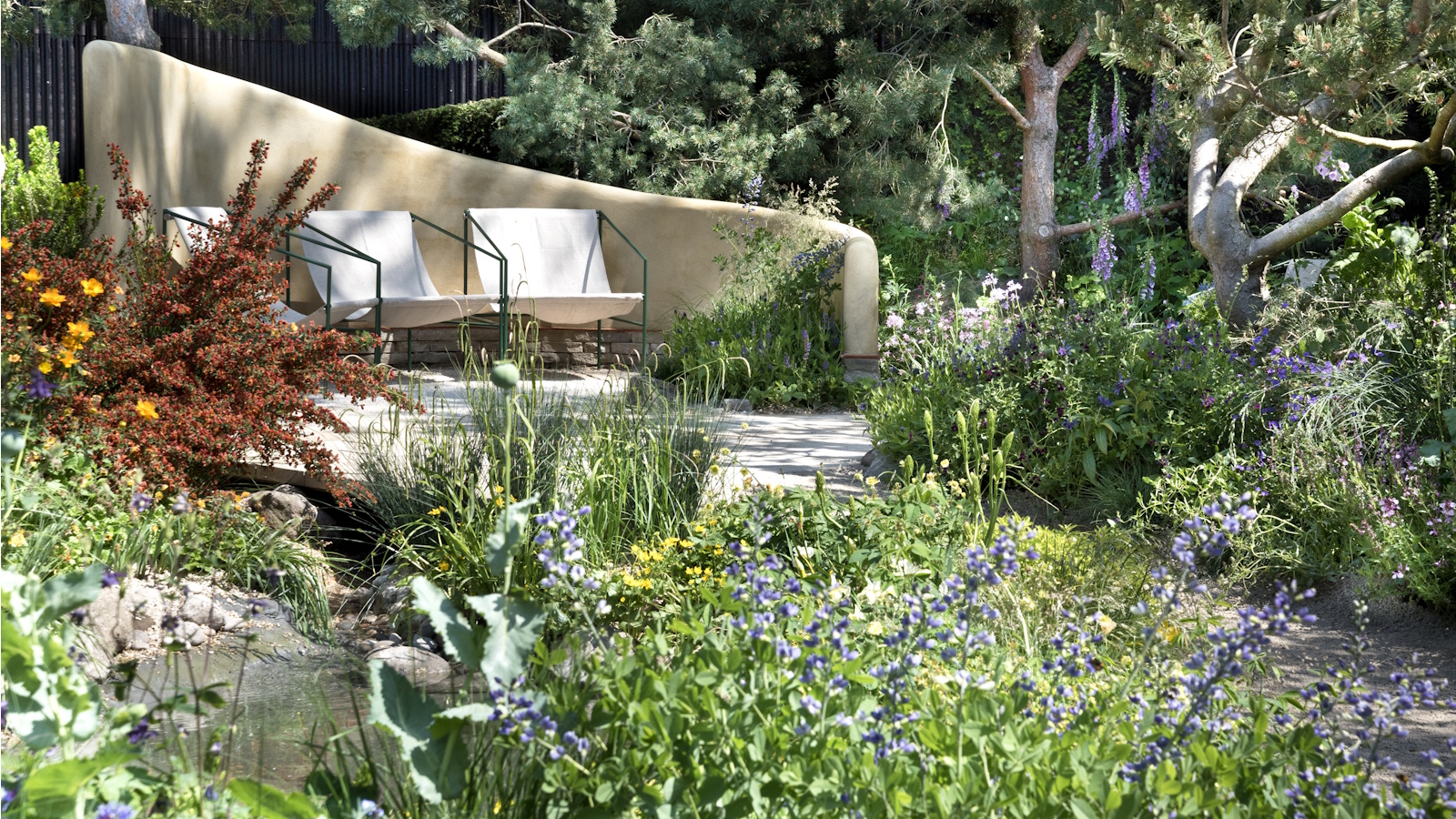 I just discovered the best non-toxic product for getting rid of ants in your yard – and you probably already have it in your bathroom cupboard
I just discovered the best non-toxic product for getting rid of ants in your yard – and you probably already have it in your bathroom cupboardThis household item is an effective ant deterrent that doesn't leach harmful chemicals into your soil
By Tenielle Jordison Published